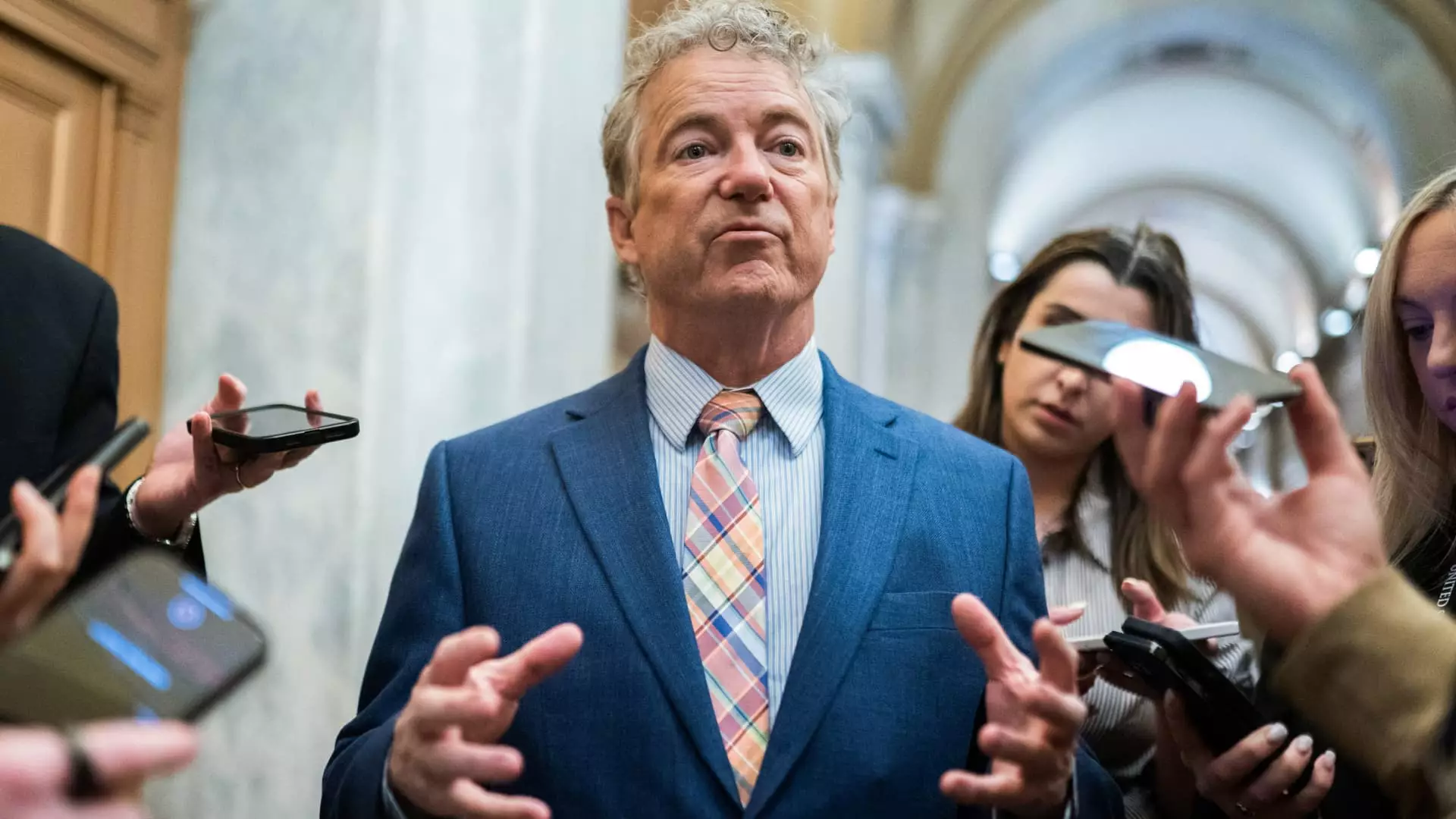In an increasingly polarized political landscape, the clash between President Donald Trump and Senator Rand Paul typifies a broader ideological rift within the Republican Party itself. Trump’s vehement support for a massive budget bill, laden with provisions for an exorbitant debt ceiling increase, sharply contrasts with Paul’s libertarian outlook that prioritizes fiscal conservatism over growth-at-all-cost principles. Trump has fervently referred to the bill as the “one big, beautiful bill,” yet this characterization rings hollow when cast against a conservative backdrop that values limited government and sound fiscal policy.
Trump’s attack on Paul isn’t merely a squabble between two prominent Republicans; it symbolizes a profound dispute over the party’s direction. The bill—intended as the cornerstone of Trump’s domestic policy—pushes for expansive tax cuts and increases in government spending, the very antithesis of traditional conservative values that champions smaller government and reduced debt. This begs the question: Will the Republican Party continue to morph into a populist machine hell-bent on instant economic gratification at the expense of prudent financial governance?
The Faulty Foundation of “Tremendous Growth”
Trump’s assertion that the proposed budget bill will spur “tremendous GROWTH” is a lofty promise that lacks substantive grounding in conservative economic theory. Growth through increased debt can only be a temporary mirage, often leading to inflationary pressures and diminishing returns on taxpayer investment. While Trump lambasts Paul for his dissenting position, one cannot ignore the fact that Paul’s skepticism reflects a grounded understanding of the economic principles that underpin sustainable governance.
The senator’s opposition centers largely on a quintessential point of contention: raising the debt ceiling by $5 trillion is indicative of a financial recklessness that could jeopardize future generations. By neglecting the implications of ever-increasing national debt, the Trump administration is playing a dangerously high-stakes game with a national economic stability that could backfire dramatically. Rather than endorsing a strategy of manageable growth, Trump is endorsing a fiscal approach that prioritizes short-term gains over long-term viability.
The Political Pressure Cooker
Trump’s fervent reaction to Paul underscores the desperate need for political capitulation within the Republican ranks. The president’s pointed remarks reveal an anxiety-laden campaign to rally support from party members who harbor reservations about expansive fiscal policies. Trump’s disparagement of Paul—branding him as someone who lacks practical ideas—exposes the undercurrents of fear in a party that has shifted dangerously close to authoritarian populism.
The tactic employed here is one of pressure and intimidation—a direct approach that mirrors the political climate of contempt and division that has engulfed both parties. Paul’s reluctance to endorse the budget projections reveals a fortitude rarely found amidst the chorus of sycophantic approval that often characterizes GOP responses to Trumpian policies. The idea that voting “NO” constitutes poor politics is a misjudgment; dissent can, in fact, be a courageous stand for the constituents who prioritize responsible governance over political expediency.
Policy Implications and Social Justice
Beyond the political drama lies the substantial impact of these budgetary maneuvers on marginalized communities and social welfare programs. The mansionization of tax cuts for the wealthy—with accompanying work requirements and introduced amendments to SNAP—signals an impending regressive trend that would disproportionately afflict low-income families. The façade of social responsibility in Trump’s plan collapses when scrutinized closely, revealing gaping holes where true support for vulnerable populations should exist.
Paul’s argument that he cannot, in good conscience, endorse such sweeping increases in debt parallels the sentiments of many Americans who feel entangled in a web of financial insecurity worsened by governmental mismanagement. The tug-of-war between tax rejuvenation for corporate entities and welfare support for individuals in need is more than just ideological; it’s a reflection of our collective moral compass as a nation.
In this contentious environment, Trump’s aggressive budget proposal, rather than promising prosperity, could doom many to a lifeless existence under an ever-expanding burden of debt—a burden that future generations may struggle to shake off. The tension among party members such as Paul and Trump is ultimately a window into the values that guide American political and economic dialogue: Should we stand for unbridled growth or responsible governance? The answer may shape our nation for decades to come.


Leave a Reply